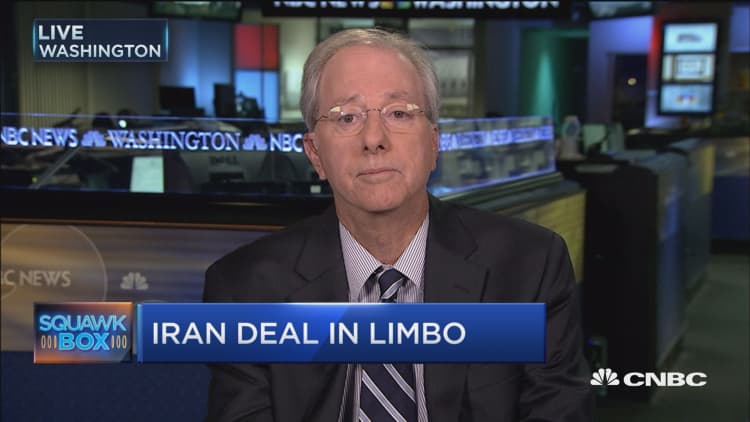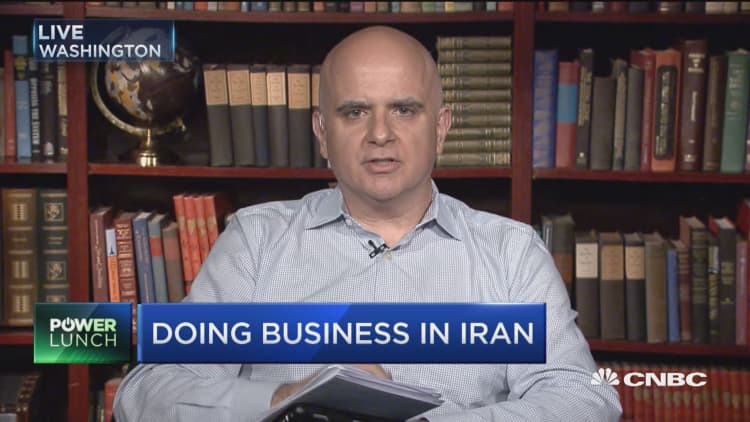President Donald Trump may find it difficult to prevent Iran from selling its oil, a proven way to pressure the U.S. adversary, if he decides to renew sanctions on Tehran, analysts warn.
The assessments come after Trump announced plans to toughen the terms of the 2015 Iran nuclear deal, which saw Tehran limit its nuclear program in exchange for sanctions relief. Trump said he will scrap the deal and restore the sanctions if he can't reach a solution with Congress and U.S. allies to address his problems with it.
While close U.S. allies in Europe, South Korea and Japan would likely curtail oil purchases from Iran if Trump restores U.S. sanctions, Asian buyers like China and India may resist, analysts say. If sanctions do not prevent foreign firms from doing business with Iran, they are less likely to exert enough pressure to bring Iran back to the negotiating table.
A comprehensive sanctions regime engineered by the U.S. Treasury Department had a devastating impact on Iran's economy and helped shrink its oil output by 1 million barrels a day through 2015. The effort began under President George W. Bush and intensified under President Barack Obama.

Both presidents marshaled international support for sanctions around Iran's alleged secret attempts to develop a nuclear weapon. The five nations that negotiated the deal alongside the United States — China, France, Germany, Russia and the U.K. — all say the agreement is preventing Iran from building a weapon and should remain in place.
Still, European firms, which buy about 25 percent of Iran's oil, could stop their purchases for fear of triggering U.S. sanctions, Goldman Sachs said in a research note on Tuesday. But the bank is less certain how Asian buyers would react.
"We believe the key for the global oil market is whether these flows will be curtailed rather than simply redirected to Asia with the impact of potential U.S. sanctions on international insurance and shipping key to this outcome," Goldman Sachs said. The Obama administration expanded sanctions to include the insurers and shippers that service Iran's energy sector.
Sanctions would initially impact several thousand barrels per day of Iranian exports, but the shipments aren't likely to drop to pre-deal levels without full international backing, Goldman said.

Risk consultancy Eurasia Group's assessment is similar. If the United States withdraws from the deal, the European Union would most likely try to prohibit the continent's companies from complying with renewed sanctions. However, European firms would probably still pull out of Iran, it says.
"Oil importers in Europe, South Korea, and Japan will also likely decide against purchasing Iranian oil. But it is far less likely that China or India will acquiesce to a U.S. demand to significantly reduce, or halt, their imports," Eurasia Group Chairman Cliff Kupchan wrote in a briefing on Friday.
In this scenario, Eurasia Group estimates that Iran could limit its losses to about 300,000 barrels if it offers China and India significant discounts.


